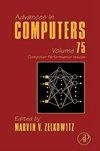中国法律在美国法院的证明
4区 计算机科学
Q1 Computer Science
引用次数: 0
摘要
即使在有关中美经济“脱钩”的政治言论的背景下,美国法院审理的包含中国元素的争端数量仍然强劲。这些跨境纠纷往往涉及中国当事人和特殊问题,其中一些涉及中国商业文化,但许多涉及中国法律的解释问题。在这些案件中如何证明中国法律?美国法院在解释中国法律方面表现如何?本文首先讨论了在美国法院证明中国法律的途径。虽然专家证词经常被提交,而且对美国法院来说可能很有价值,但适用的美国规则没有提供评判这些意见的标准。而且,在中国的情况下,如果没有具体的指导,对于不熟悉中国或中国法律体系的法官来说,确定应该相信哪一种法律版本可能是一项挑战。此外,在适用的规则下,美国法院可以简单地忽略与之竞争的中国法律意见,并进行自己的中国法律研究,可能使用英语资源。这至少可以导致对中国法律的有趣解释。本文通过对近年来对《中华人民共和国民事诉讼法》第二百七十七条作出解释的几个案例的考察来进行讨论。这是中国法律的法律规定,在涉及跨境发现的某些情况下可能会涉及这一规定,目前在报道的美国判决中,有许多案件涉及第277条。本文将第277条置于中国民事诉讼的大背景下进行分析,认为该条所使用的语言具有特殊的含义。2020年8月至12月31日,美国威斯康星大学法学院东亚法律研究中心访问学者。特别感谢Ohnesorge教授和东亚法律研究中心的工作人员。《在美国法院证明中国法律》(189)(2021年冬季)在中国证明法范围内证明中国法律,这在美国的案件判决中被模糊了,导致了错误的结果。文章最后为法官和从业者在未来的美国案件中解释中国法律提供了一些建议。本文章由计算机程序翻译,如有差异,请以英文原文为准。
Proving Chinese Law in the Courts of the United States
The volume of disputes heard by United States (US) courts containing a China element continues to be robust even against a backdrop of political rhetoric concerning an economic ‘decoupling’ of the US and China. These cross-border disputes often involve Chinese parties and special issues, some of which concern Chinese business culture, but many of which involve interpreting questions of Chinese law. How is proving Chinese law accomplished in these cases and how have US courts performed in interpreting Chinese law? This article first discusses the approach to proving Chinese law in US courts. While expert testimony is often submitted and can be valuable to a US court, the applicable US rule offers no standards by which these opinions are to be judged. And, in the China context, without specific guidance, it can be challenging for a judge, unaccustomed with China or the Chinese legal system to determine which version of the law to believe. Moreover, under the applicable rule, the US court can simply ignore competing Chinese law opinions and conduct its own Chinese law legal research, presumably using English language sources. This can lead to interesting interpretations of Chinese law to say the least. The article anchors its discussion in an examination of those recent cases which have interpreted Article 277 of the Civil Procedure Law of the People’s Republic of China. This is the legal provision of Chinese law that can be implicated in certain situations involving cross-border discovery, and there are now numerous Article 277 cases among the reported US decisions. The article analyses Article 277 by placing it within the larger context of Chinese civil procedure and argues that the language used in the provision has a special meaning 1 American lawyer in private practice. Visiting Scholar, East Asian Legal Studies Center, University of Wisconsin Law School, August to 31 December 2020. Special thanks to Professor Ohnesorge and the staff of the East Asian Legal Studies Center. 189 Proving Chinese Law in the Courts of the United States Winter 2021 within Chinese evidence law that has been obscured in those US case decisions interpreting it, leading to erroneous results. The article concludes by offering judges and practitioners some suggestions for interpreting Chinese law in future US cases.
求助全文
通过发布文献求助,成功后即可免费获取论文全文。
去求助
来源期刊

Advances in Computers
工程技术-计算机:软件工程
CiteScore
5.40
自引率
0.00%
发文量
58
审稿时长
>12 weeks
期刊介绍:
Since its first volume in 1960, Advances in Computers has presented detailed coverage of innovations in computer hardware, software, theory, design, and applications. It has also provided contributors with a medium in which they can explore their subjects in greater depth and breadth than journal articles usually allow. As a result, many articles have become standard references that continue to be of significant, lasting value in this rapidly expanding field.
 求助内容:
求助内容: 应助结果提醒方式:
应助结果提醒方式:


